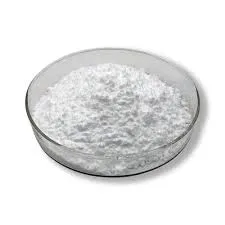
Nov . 18, 2024 23:12 Back to list
what is hydroxyethyl cellulose
Understanding Hydroxyethyl Cellulose Properties, Uses, and Applications
Hydroxyethyl cellulose (HEC) is a non-ionic, water-soluble polymer derived from cellulose, a natural polymer found in the cell walls of plants. This versatile compound is known for its unique properties and a wide range of applications in various industries, including cosmetics, pharmaceuticals, food, and construction. This article will provide an overview of HEC, its properties, uses, and significance in different fields.
Properties of Hydroxyethyl Cellulose
HEC is produced by the etherification of cellulose, which involves the reaction of cellulose with ethylene oxide in the presence of an alkaline catalyst. The resulting polymer exhibits several desirable properties, making it a valuable ingredient in various formulations.
One of the most notable characteristics of HEC is its ability to dissolve in cold water, forming a clear, viscous solution. This solubility allows HEC to be easily incorporated into formulations without the need for heating, making it convenient for use in manufacturing processes. Additionally, HEC is known for its excellent thickening, gelling, and emulsifying properties. It can increase the viscosity of solutions, enhance the stability of emulsions, and improve the texture of products, providing a smooth and creamy feel.
Another significant property of HEC is its stability over a wide range of pH values and temperatures. This stability ensures that products containing HEC maintain their performance and consistency under various conditions. Moreover, HEC is biocompatible and non-toxic, making it suitable for use in sensitive applications such as pharmaceuticals and personal care products.
Applications of Hydroxyethyl Cellulose
what is hydroxyethyl cellulose

1. Cosmetics and Personal Care Products HEC is widely used in the cosmetics industry due to its thickening and emulsifying properties. It is commonly found in lotions, creams, shampoos, and gels, where it improves texture and provides a desirable formulation consistency. In addition, HEC acts as a film-forming agent, enhancing the application experience for products such as hair styling gels and facial masks.
2. Pharmaceuticals In the pharmaceutical sector, hydroxyethyl cellulose serves as an excipient in drug formulations. It is included in controlled-release systems, where its thickening properties help to regulate the release of active ingredients over time. HEC is also utilized in the formulation of topical gels, ointments, and eye drops, where its ability to create clear solutions and maintain stability is critical.
3. Food Industry HEC finds its applications in the food industry as a thickener and stabilizer. It is used in sauces, dressings, and dairy products to improve texture and shelf-life. Due to its food-grade quality, HEC is considered safe for consumption and is often preferred as a natural alternative to synthetic additives.
4. Construction In construction, HEC is incorporated into cement-based materials such as mortars and plasters. It enhances workability, extends open time, and improves adhesion. The water-retaining properties of HEC help to maintain moisture levels during the curing process, leading to stronger and more durable structures.
Conclusion
Hydroxyethyl cellulose is a multifunctional polymer that plays a crucial role in various industries. Its unique properties, including solubility, thickening ability, and stability, make it an invaluable ingredient in formulations ranging from cosmetics to pharmaceuticals, food, and construction materials. As industries continue to seek natural and effective additives, HEC stands out as a reliable choice, contributing to innovative product development and enhanced consumer experiences. As such, understanding hydroxyethyl cellulose's properties and applications is essential for professionals in relevant fields, paving the way for informed choices and advancements in formulations.
-
Versatile Hpmc Uses in Different Industries
NewsJun.19,2025
-
Redispersible Powder's Role in Enhancing Durability of Construction Products
NewsJun.19,2025
-
Hydroxyethyl Cellulose Applications Driving Green Industrial Processes
NewsJun.19,2025
-
Exploring Different Redispersible Polymer Powder
NewsJun.19,2025
-
Choosing the Right Mortar Bonding Agent
NewsJun.19,2025
-
Applications and Significance of China Hpmc in Modern Industries
NewsJun.19,2025







